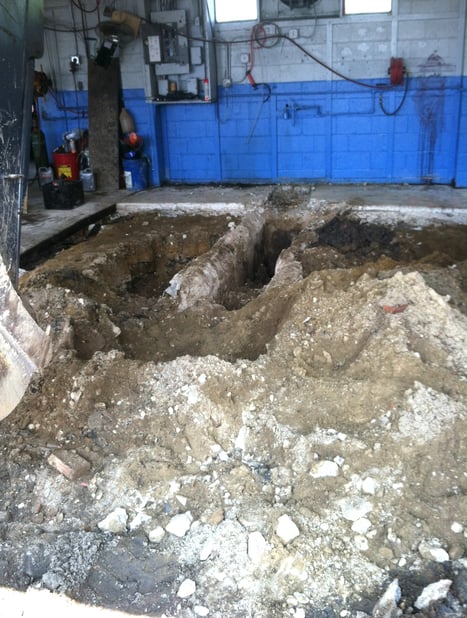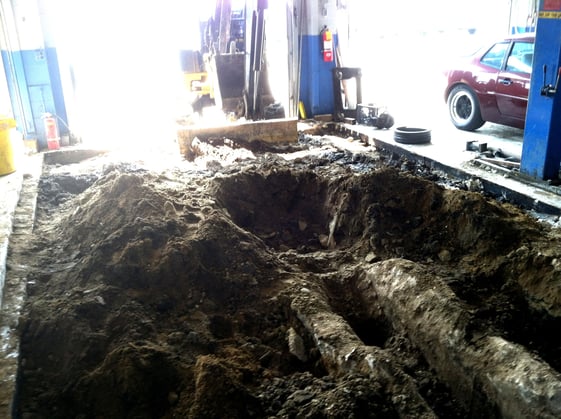In 2009, the New Jersey Legislature in conjunction with the New Jersey Department of Environmental Protection (NJDEP) enacted the Site Remediation Reform Act, which was designed to expedite and better manage contaminated sites in New Jersey. In essence, the NJDEP privatized the management and environmental cleanup of commercial contaminated properties in New Jersey. Previously the NJDEP would take a more active or inactive role in the management of these sites depending on how you defined managed. The new regulations require owners of contaminated sites (responsible party) to retain a LSRP (licensed site remediation professional) to direct said owner in following the applicable NJDEP regulations. There are steep fines for owners that do not follow these regulations and these fines are meant to ensure compliance. To establish timely compliance, the NJDEP also has timeframe deadlines for when specific tasks must be completed, such as defining the extent of a plume - both on and off site, if and when applicable. Additional incentive for property owners to remediate a property relates to annual fees the NJDEP imposes on owners of the contaminated site. The theory being if you are being charged for owning a contaminated site you will be motivated to remediate and thus remove those fees.
Licensed site remediation professionals" (LSRPs), are private sector professionals authorized to act instead of the NJDEP to evaluate contamination and supervise asd well as approve remediation efforts at industrial/commercial sites. LSRPS’s have education and experience requirements as well as having to pass a proficiency exam and complete on going continuing education relative to environmental regulations. In short, the LSRPs do what the NJDEP formerly did, and in theory do it more efficiently and expeditiously. At the conclusion of a cleanup, LSRPs issue the site an approval called a "response action outcome" (RAO). RAO’s, say that the site is in compliance with environmental regulations. RAO's, replaces what the NJDEP historically had provided for sites, which was an NFA or "No Further Action". NFA’s while still provided for residential sites, were formerly issued by the NJDEP under the prior system on commercial sites. Commercial sites no longer receive an NFA under these regulations
The NJDEP still has oversight over LSRP’s, although somewhat limited as the regulations allow the LSRP’s to use professional judgement. The LSRP program has both fans and critics. There are federal and state environmental regulations in the United States, but of all the states only two have an LSRP program (Massachusetts and New Jersey). Bottom line, if you have interests in commercial property in New Jersey and that is contaminated, you will be retaining an LSRP.




